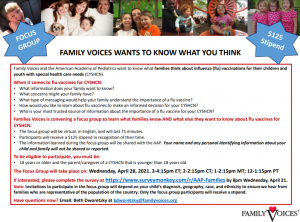The courses were designed using the evidence-based Pyramid Model for Social Emotional Competence in Infants and Young Children which promotes and supports infant and early childhood mental health and the social emotional development of all children.
Course Titles
- Building Relationships and Creating Supportive Environments
- Social and Emotional Assessment and Targeted Social Emotional Strategies
- Intensive Interventions
The courses were designed using the evidence-based Pyramid Model for Social Emotional Competence in Infants and Young Children which promotes and supports infant and early childhood mental health and the social emotional development of all children. As reflected in these three courses, the Pyramid Model takes a tiered public health approach to providing universal supports to all children to develop social emotional skills, targeted supports to those at risk, and intensive interventions for those who need them. All supported by an effective workforce, receiving training and coaching to support these practices in their settings. These self-paced interactive courses are rich with user-friendly training materials, videos, and print resources.
The first course, Building Relationships and Creating Supportive Environments, introduces the Pyramid Model, explores the relationship between challenging behavior and social emotional development, examines our attitudes about challenging behavior, and builds positive relationships between children and families. Adults interacting with children in a range of settings within diverse disciplines, including early intervention providers, early educators, families, and other professionals, gain new insight to the meaning behind challenging behavior and how to address it appropriately.
The second course, Social and Emotional Assessment and Targeted Social Emotional Strategies, provides information on implementing effective social emotional teaching strategies within the classroom. These strategies help infants and toddlers learn to express emotions appropriately, solve problems, and build friendships. Participants learn why teaching social emotional skills is important, when it is appropriate, which skills to teach, and how to teach them.
The last course in the series, Intensive Interventions, provides information on implementing individualized interventions for children who do not respond to regular intervention strategies implemented in the classroom. Most children will not need this level of support although some children need extra attention and individualized plans to support them to acquire the skills of self-regulation and positive peer and adult interaction. Participants learn to identify the functions of challenging behavior, how family trauma can impact a child’s expression of behavior, how to implement a behavior support plan, and how to support their team through the Pyramid Model during these scenarios in their classroom.


